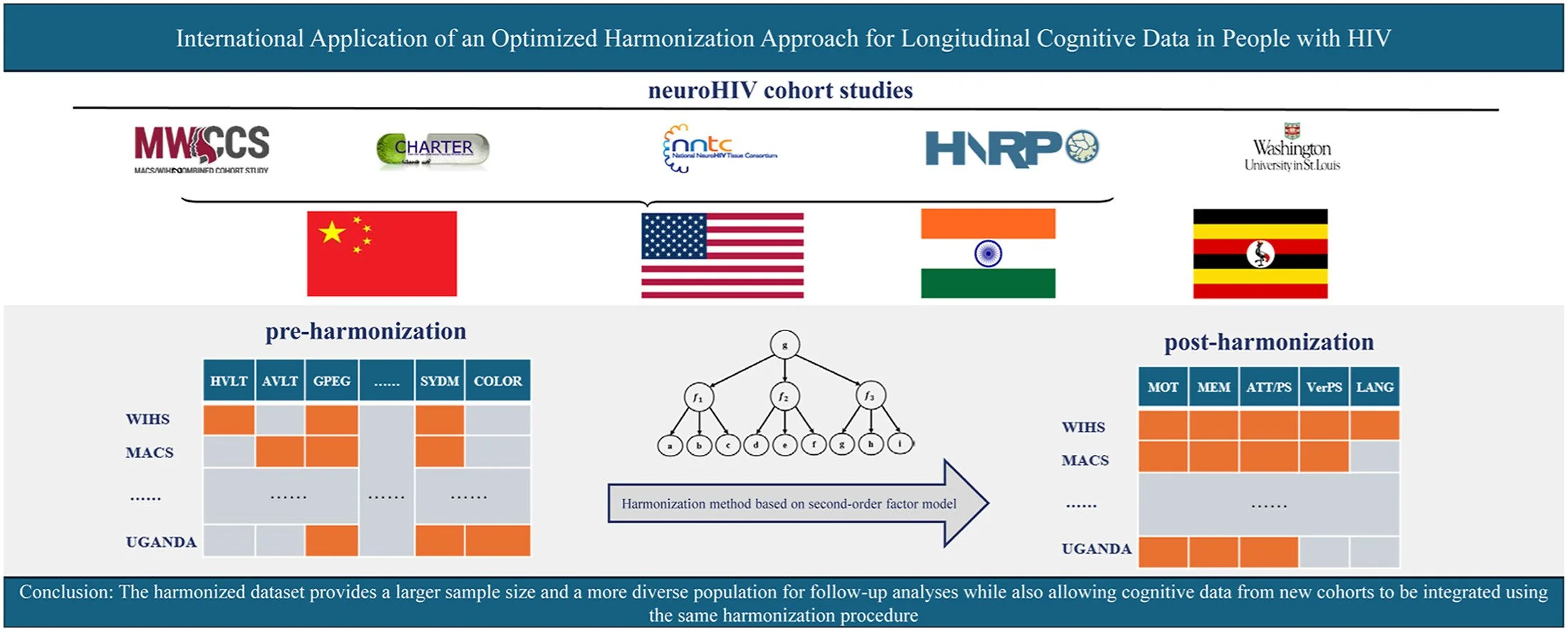International application of an optimized harmonization approach for longitudinal cognitive data in people with HIV
An article in the Journal of Clinical Epidemiology, published September 11, 2025.
Authors: Lang Lang, Leah H. Rubin, Beau M. Ances, Aggrey Anok, Sarah Cooley, Raha M. Dastgheyb, Rebecca E. Easter, Donald R. Franklin Jr., Robert K. Heaton, Scott L. Letendre, Gertrude Nakijozi, Thomas Marcotte, Robert Paul, Eran F. Shorer, Stephan Tomusange, David E. Vance, Yanxun Xu
Figure: Graphical abstract of study (from referenced paper).
People with HIV (PWH) often face a variety of cognitive challenges, but these issues can look different for each person. As different studies use different tests to measure cognitive abilities, it is difficult to combine the results from multiple studies and draw clear conclusions. In previous work, researchers developed a refined method to harmonize data from five large US-based HIV neuro studies. Such method could handle the scenarios where non-overlapping cognitive tests are used in certain domains across different studies. This study aimed to include additional cohorts from the United States, China, India, and Uganda. Because these new cohorts also use non-overlapping cognitive tests in certain domains, researchers applied an approach to harmonize the new data into previously harmonized data. This refined method created “harmonized scores” for cognitive abilities that closely matched the original test results. These scores captured differences related to age, education, and other factors while preserving how each person's cognitive abilities changed over time. By using this method to combine new data with existing data, the research team was able to create a more comprehensive and diverse data set. This will aid researchers to better understand the wide range of cognitive changes in PWH, leading to stronger, more inclusive studies on the impact of HIV on cognition.
Beau Ances, MD, PhD, director of the Midwest D-CFAR’s Clinical Science Core is a co-author of the research paper and contributed data to the study. “The team harmonized cognitive scores across different groups and closely matched the original test data, preserving important patterns related to age, education, and race,” Dr. Ances described. “At the end they now have a dataset of 18,270 participants from multiple countries, and this harmonized dataset provides normative data that will allow for more robust analyses for neuro-HIV research.”

